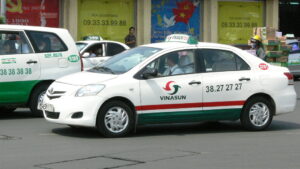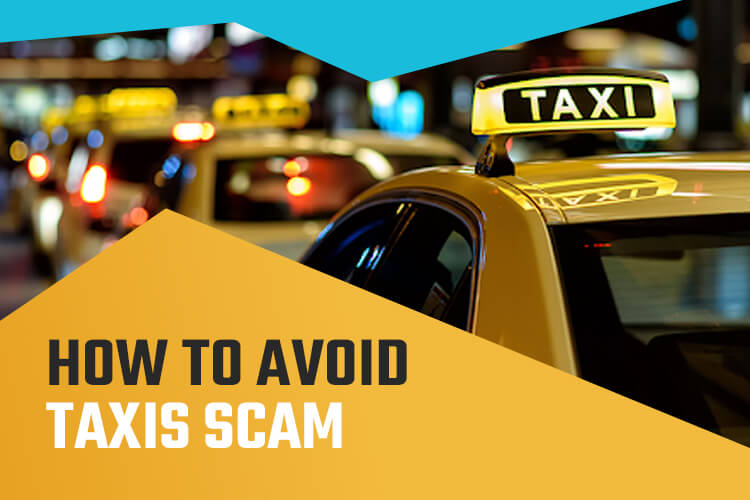How to Avoid Taxi Scams in Vietnam (And Travel Smarter!)
Thinking about exploring the vibrant streets of Vietnam? That’s awesome! From the bustling markets of Hanoi to the majestic limestone karsts of Halong Bay, Vietnam is a dream destination for many travelers. But if there’s one thing that can quickly kill your travel vibe, it’s falling victim to a taxi scam.
Taxi scams are, unfortunately, a common issue in Vietnam, particularly in tourist-heavy areas. The good news? You don’t have to worry because we’ve got your back! This guide will show you how to spot these scams and how to get around the country stress-free.
What Are Taxi Scams, and Why Are They a Problem in Vietnam?
Taxi scams typically involve overcharging passengers, taking unnecessarily long routes, or using tampered meters. These scams can sour your travel experience and leave you feeling frustrated—not exactly the start (or end) to your adventure that you’d wish for.
The good news is that most scams are avoidable if you know what to look out for. With the right tips in hand, you’ll be navigating Vietnam’s cities and countryside like a pro!
Common Taxi Scams in Vietnam
Here are some of the most frequent taxi scams tourists encounter. Recognizing them is the first step to avoiding them.
1. Fake Taxi Companies
Some drivers use cars with logos that mimic legitimate taxi companies, making it hard to tell the difference. Their meters may run faster than normal, or they’ll charge an inflated flat fee.
2. Meter Tampering
You may come across taxis with rigged meters that count up at lightning speed. Before you know it, a short ride costs you twice the price!
3. Wrong Change or Currency Confusion
Drivers may claim they don’t have small denominations to provide change, or they might “accidentally” give you the wrong amount, especially with Vietnam’s large denominations of dong.
4. Unnecessarily Long Routes
Instead of taking the quickest route, some drivers may circle around, turning a short trip into a long one just to rack up the fare.
5. Flat Fare Scams
A driver might insist on a flat fee instead of using the meter, quoting an amount that’s significantly higher than the standard fare.
6. Airport Overcharging
Unlicensed drivers may wait at airports and approach tourists with offers for a ride. They’ll often charge three to four times the usual rate, banking on the fact that visitors are unfamiliar with local fares.
How to Avoid Taxi Scams in Vietnam
Don’t worry! You can easily avoid these scams and travel with peace of mind by following these practical tips:
1. Use Reputable Taxi Companies
Stick to trusted companies like Mai Linh Group and Vinasun. Their cars are easy to identify, with company logos, proper uniforms, and regulated meters. Snap a picture of the license plate before getting into the car, just in case.


2. Book a Ride Through Apps
Thanks to ride-hailing apps like Grab and Gojek, getting around Vietnam has never been easier! These apps provide upfront pricing, so you’ll know exactly what you’re paying before you even step into the car. Plus, they’re just a few taps away on your smartphone.
3. Agree on a Price for Long-Distance Trips
If you’re heading to a rural area or somewhere distant, negotiate the price before starting your ride. A lot of smaller locations don’t use meters, so this can help save you from surprises later.
4. Carry Small Bills
Make sure you carry smaller denominations of Vietnamese dong to avoid issues with change. If the driver claims they don’t have change, insist on waiting until they can find it.
5. Learn Basic Vietnamese Phrases
Sometimes, speaking a bit of the local language can work wonders. Learn phrases like:
- “Bao nhiêu tiền?” (How much does it cost?)
- “Đi đường này.” (Go this way.)
Even basic efforts demonstrate you’re not a clueless tourist, which can help deter scammers.
6. Be Mindful at Airports
Use official taxi stands at airports rather than accepting rides from random drivers. Better yet, pre-book airport transfers online or through trusted travel agencies.
7. Use Maps to Monitor Your Route
Turn on your GPS or use a maps app (Google Maps works well) to follow along as the driver takes you to your destination. If their route seems suspiciously long or incorrect, speak up.
What to Do If You Encounter a Taxi Scam
Even with all the preparation in the world, sometimes things happen. If you suspect you’ve been scammed, here’s what you can do:
- Speak to Hotel Staff: If possible, report the incident to your hotel or hostel staff. They may help you resolve the issue or warn other guests.
- Notify the Taxi Company: Legitimate companies like Mai Linh and Vinasun are known for their professionalism and will act on complaints.
- Call the Tourist Hotline: Vietnam’s tourist hotline (dial 115 or 113 for police) can help in emergencies or disputes.
Taking these actions and standing your ground shows that you’re not an easy target.
Alternatives to Taxis in Vietnam
Not keen on taking taxis? No problem! Vietnam offers multiple safe and affordable transport options:
- Public Buses: A budget-friendly way to travel, especially in larger cities like Ho Chi Minh City and Hanoi.
- Motorbike Taxis (Xe Om): A fun and local way to travel short distances. Use GrabBike for safe, app-based bookings.
- Cyclo Rides: A laid-back experience in traditional cycle rickshaws, though you’ll need to negotiate the price upfront.
- Rent a Bike: If you’re feeling adventurous, renting a motorbike is an excellent way to explore Vietnam’s countryside at your own pace.
Explore Vietnam Safely and Stress-Free
Vietnam is a beautiful country filled with kind and welcoming people, but being prepared for potential scams is the key to a stress-free adventure. By staying informed and cautious, you can avoid taxi scams and focus on enjoying everything this incredible destination has to offer.
Now, pack your bags, grab your guidebook, and get ready to sip some authentic Vietnamese coffee as you explore the wonders of this amazing country. Travel smart, and happy exploring!
